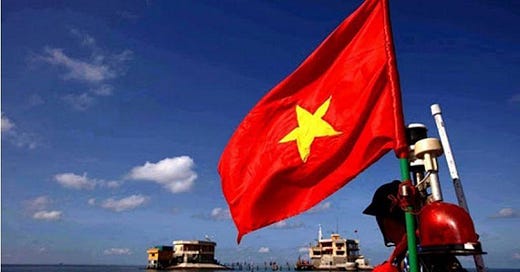By: David Brown
Defying the odds, Vietnam has become a consequential country and a regional power. It is to Laos and Cambodia as Vietnam’s neighbor to the north, China, is to Vietnam: far more populous, prosperous and powerful.
That wasn’t always the case. After achieving Vietnamese unification in 1975, the doctrinaire Marxists who had steered their side to victory in the war against the US-backed South proved remarkably inept at producing prosperity. Not until communism imploded in the Soviet Union and Eastern Europe did the leaders in Hanoi turn away from collectivization and a command economy.
A quarter of a century later, though still Marxist-Leninist in its politics, Vietnam is an increasingly sophisticated player in the global trading system, a formidable military power and a sought-after partner in enterprises of regional and global scope. “Market socialism,” Hanoi’s name for the system it implemented in the 1990s, produces and spreads around enough wealth domestically that Vietnam’s ambitious citizens would, in general, rather join the ruling Communist Party than topple it.
Keep reading with a 7-day free trial
Subscribe to Asia Sentinel to keep reading this post and get 7 days of free access to the full post archives.



